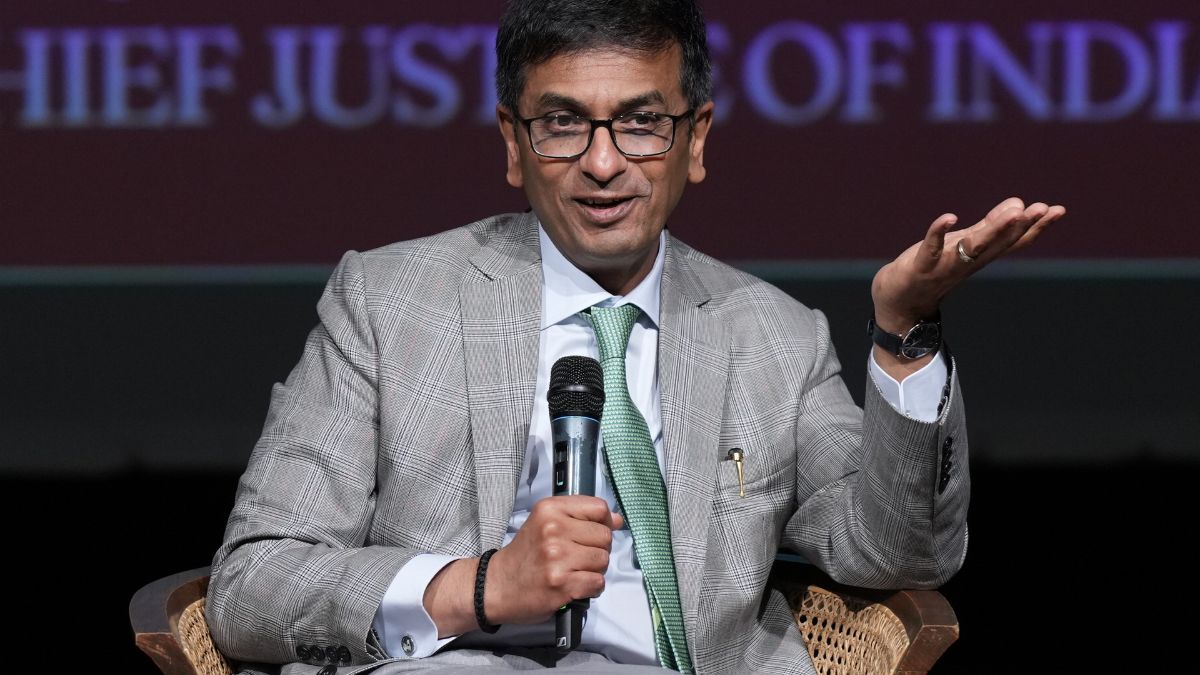Chief Justice of India (CJI) DY Chandrachud bid an emotional farewell to the Supreme Court on his last working day as the head of the Indian judiciary on Friday (November 8). Expressing a deep sense of fulfilment, he said there was no “greater feeling” than serving those in need or people he never knew or met.
The outgoing CJI will demit office on Sunday (November 10), with his successor Justice Sanjiv Khanna taking over the post on Monday.
Once the CJI retires, what can he do and what is restricted? What perks will he get? We will explain.
What CJI cannot do
A retired judge of the Supreme Court is not allowed to practice law in any court of the country.
According to Article 124(7) of the Constitution, “No person who has held office as a Judge of the Supreme Court shall plead or act in any court or before any authority within the territory of India.”
This restriction aims to preserve the sanctity and impartiality of the judiciary, as per a Law Trend article.
Such a provision helps in avoiding a conflict of interest and allegations of bias that may crop up if a retired judge appears as an advocate for a case they previously adjudicated.
If a Supreme Court judge is allowed to practice law after retirement, it could undermine the dignity of their previous post, the article noted.
The provision also stops any potential misuse of sensitive information in a legal case that they are privy to, reported Law Trend.
What can judges do after retirement?
While the retired Supreme Court judges cannot practice law, they can take up other roles.
Some choose to enter public service and get appointments as governors or members of governmental committees, noted Law Trend.
Retired judges could also become arbitrators or mediators in disputes. The Arbitration and Conciliation Act, 1996 says “a person, who has been, a Judge of the Supreme Court or, Chief Justice of a High Court or, a Judge of a High Court” can be a member of the Arbitration Council of India.
Impact Shorts
More ShortsThey can also serve as the head or join commissions and tribunals, such as the National Human Rights Commission or the National Green Tribunal.
Another option for retired judges is to become a part of academia by teaching in law schools, conducting lectures, or writing on legal issues.
Debate over the issue
Retired Supreme Court judges accepting jobs in government bodies has become a hot topic of debate.
While some frown upon the practice, others do not find any issue with it. Those who are against it argue that it could impact the judiciary’s independence by fanning a culture of sycophancy.
Former CJI Ranjan Gogoi's nomination to the Rajya Sabha within six months of demitting office had created a widespread debate about post-retirement appointments.
As per a Bar and Bench report published last June, of the 28 judges who retired in the last five years, six judges got constitutional or statutory posts.
Outgoing CJI Chandrachud has expressed his views on the issue, talking about a “cooling-off” period for retired High Court and Supreme Court judges before taking the political plunge.
In an interview with Dainik Bhaskar in August, he said, “After retiring as a judge, one should take some time before joining politics. Even if one decides to join politics, there should be a sufficient gap.”
He said judges are viewed as impartial and should maintain their dignity even after retirement. “Justice must not only be done but must also be seen to be done. If a judge retires today and joins a political party tomorrow, it could raise questions among the public,” the outgoing CJI said.
Perks post-retirement
Retired CJIs and Supreme Court judges are entitled to several perks, including domestic help and a chauffeur for a lifetime.
In addition, retired CJIs also get lifetime secretarial assistants.
As per the latest notification released in 2022, retired CJIs will get round-the-clock security cover at their residence five years after retirement. This is in addition to 24/7 personal security guard for the same term.
For retired judges of the apex court, the security cover and personal guard are for three years.
A retired CJI also gets rent-free Type VII accommodation in New Delhi for six months after retirement.
Moreover, former CJIs and retired Supreme Court judges are entitled to get their monthly mobile phone and Internet bills reimbursed to the extent of Rs 4,200.
With inputs from agencies


)

)
)
)
)
)
)
)
)



